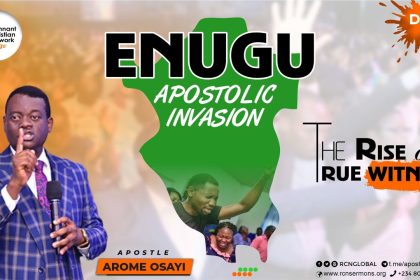Lagos has laid about 4,000 kilometres of fibre optic cable as it seeks to deepen internet access and reinforce its position as Nigeria’s startup capital, according to Olatunbosun Alake, Lagos’s commissioner for science, innovation and technology. This exceeds the 3,700 km that Babajide Sanwo-Olu, Governor of Lagos State, predicted in late 2024 for 2025 and is 2,000 km short of the state’s target of 6,000 km for 2027.
The commissioner shared this update at a recent event themed ‘Bridging Borders – How London and Lagos Can Shape the Future of Global Tech.’ “The Lagos state government, over the past four years, has expanded over 4,000 km of fibre optic cable,” he said, praising the role of public-private partnerships in driving the rollout.
As Nigeria’s commercial hub, internet connectivity is vital for Lagos’s more than 15 million residents and for the startups that form the backbone of its innovation economy.
Lagos ranks 76th on StartupBlink’s Global Startup Ecosystem Index Report 2025 and has remained Africa’s top startup city since 2021. Its ecosystem is 11.8 times larger than Abuja’s, the second-ranked city in Nigeria.
Read also: Five numbers that show how African startups performed in H1
Speaking to a UK delegation that included Sadiq Khan, Mayor of London, Alake noted that Lagos was not waiting to be discovered, as already evidenced by its place in Africa’s tech development.
“London is one of the world’s top financial and innovative hubs, boasting deep capital, a rich legal framework, and a global mindset. However, Lagos is Africa’s beating technology heart,” he said.
Internet connectivity has been crucial to this, he emphasised. He credited the emergence of Yaba as a tech hub to the partnership between the state government and Main One.
“They deployed the first high-capacity fibre cable in that area and attracted a host of startups and technology companies, and the rest, they say, is history,” the commissioner said. Despite having the most extensive fibre network in the country, Lagos still lags in the coverage it needs to meet present and future connectivity demands.
According to a white paper from the Ministry of Communications, Innovation and Digital Economy, Lagos’ fibre network currently stands at 7,864.5km. The state needs about 36,000km of fibre optic cable to achieve full network coverage, leaving a gap of 28,135.5km. Nationally, just 39 percent of Nigeria’s population lives within 5km of a fibre network. Lagos performs better at 85 percent, but coverage remains uneven, and slow internet speeds persist in underserved areas.
To bridge this gap, the state has intensified fibre investment with support from private and international players. Recently, it secured $22 million in foreign direct investment to expand fibre deployment.
“To address the growing demand for reliable connectivity, the state has advanced its investment in broadband infrastructure,” said Femi Daramola, special adviser, Infrastructure. “Furthermore, Lagos State Infrastructure Maintenance and Regulatory Agency (LASIMRA) secured foreign direct investment of $22 million toward the rollout of quality fibre installations, reinforcing Lagos’ status as a growing digital hub.”
The state’s investment in fibre is also meant to incentivise operators to expand telecom access to unserved and underserved areas of the state. Alake noted that the current administration aims to meet its 6,000km fibre target before leaving office in 2027.
While rising deployment costs pose a challenge, he said local manufacturing of fibre optic cable by firms like Coleman Cables is expected to ease the burden.
Beyond infrastructure, the commissioner stated that the state has created the right innovation environment through its Lagos Innovation Field, which encourages experimentation, research and development, and supports startups in scaling.
Read also: Startup taps local debt financing for expansion
“We are not just building for Lagos,” Alake told the London delegation. “We are open, ready, and eager to collaborate with forward-thinking governments like that of London. This is not a cold diplomatic handshake, it is an open invitation to co-invest, co-build, and co-lead.”
He added, “Let me be blunt. If we get this right, we can build a new kind of corridor, not one that just extracts value, but one that creates shared value.”







